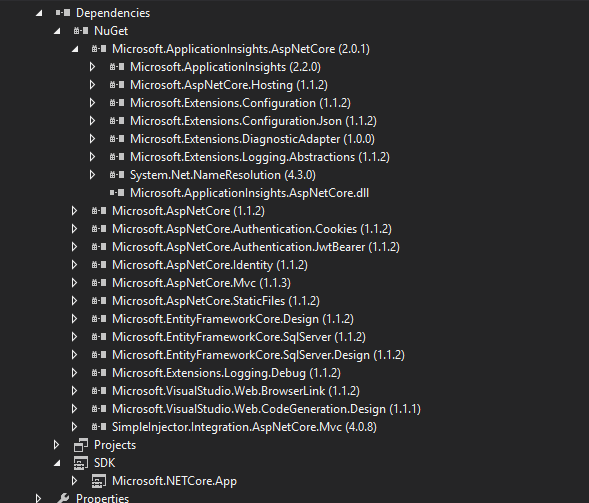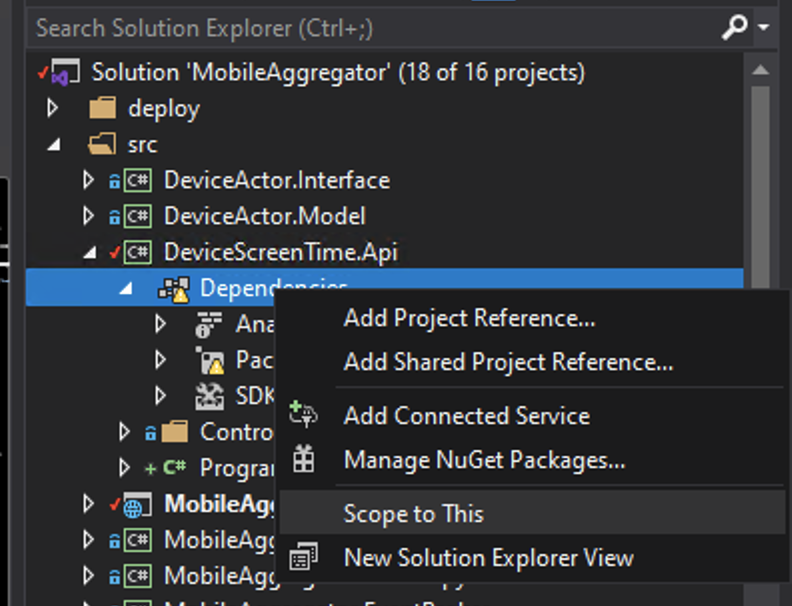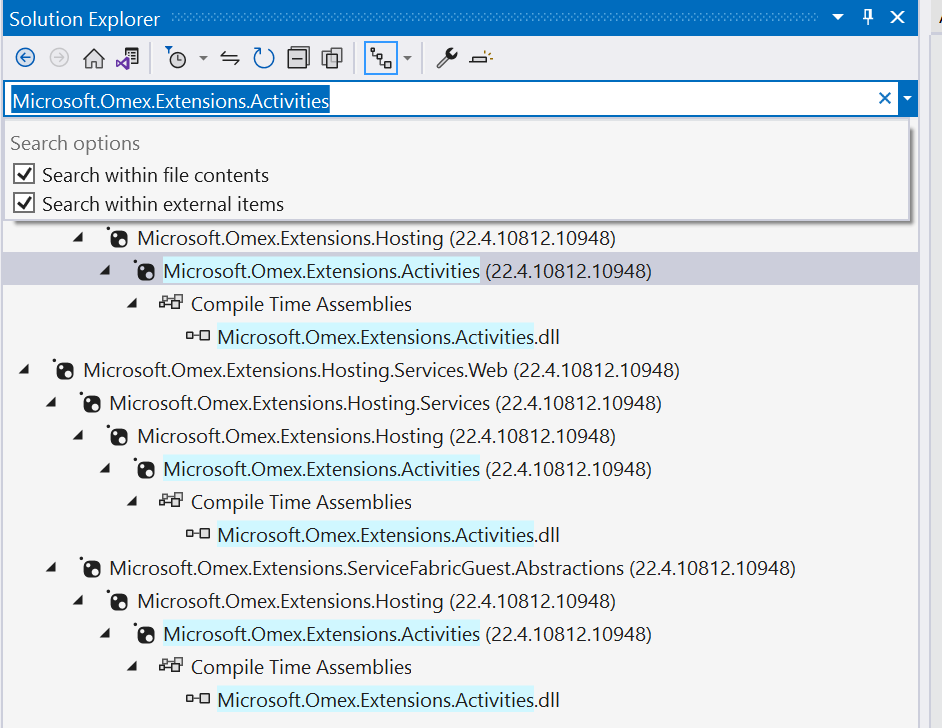You can add an msbuild target to your project file (inside the <Project> element) like this:
<Target Name="PrintAllReferences" DependsOnTargets="RunResolvePackageDependencies">
<Message Importance="high" Text="Referenced package: %(PackageDefinitions.Identity)" />
</Target>
Which you can call like this (a line without a parent package name means it is referenced by the project directly):
$ dotnet msbuild /nologo /t:PrintAllReferences
Referenced package: Microsoft.NETCore.Platforms/1.1.0
Referenced package: Microsoft.NETCore.Targets/1.1.0
Referenced package: Microsoft.Win32.Primitives/4.3.0
Referenced package: NETStandard.Library/1.6.1
Referenced package: runtime.debian.8-x64.runtime.native.System.Security.Cryptography.OpenSsl/4.3.0
Referenced package: runtime.fedora.23-x64.runtime.native.System.Security.Cryptography.OpenSsl/4.3.0
Referenced package: runtime.fedora.24-x64.runtime.native.System.Security.Cryptography.OpenSsl/4.3.0
Referenced package: runtime.native.System/4.3.0
Referenced package: runtime.native.System.IO.Compression/4.3.0
Referenced package: runtime.native.System.Net.Http/4.3.0
Referenced package: runtime.native.System.Security.Cryptography.Apple/4.3.0
Referenced package: runtime.native.System.Security.Cryptography.OpenSsl/4.3.0
Referenced package: runtime.opensuse.13.2-x64.runtime.native.System.Security.Cryptography.OpenSsl/4.3.0
Referenced package: runtime.opensuse.42.1-x64.runtime.native.System.Security.Cryptography.OpenSsl/4.3.0
Referenced package: System.Buffers/4.3.0
Referenced package: System.Collections/4.3.0
…
If you wanted a "reverse dependency tree" - a list of packages and which packages reference them - you can do something similar to:
<Target Name="PrintPackagesAndParents" DependsOnTargets="RunResolvePackageDependencies">
<Message Importance="high" Text="* %(PackageDependencies.Identity) referenced by:%0a^---@(PackageDependencies->'%(ParentPackage) - target %(ParentTarget)', '%0a^---')" />
</Target>
which produces the following output:
$ dotnet msbuild /nologo /t:PrintPackagesAndParents
* JetBrains.Annotations/10.2.1 referenced by:
^--- - target .NETStandard,Version=v1.3
* System.IO.FileSystem.Primitives/4.0.1 referenced by:
^---NETStandard.Library/1.6.0 - target .NETStandard,Version=v1.3
^---System.IO.Compression.ZipFile/4.0.1 - target .NETStandard,Version=v1.3
^---System.IO.FileSystem/4.0.1 - target .NETStandard,Version=v1.3
^---System.Xml.ReaderWriter/4.0.11 - target .NETStandard,Version=v1.3
* System.Linq/4.1.0 referenced by:
^---NETStandard.Library/1.6.0 - target .NETStandard,Version=v1.3
^---System.Security.Cryptography.Encoding/4.0.0 - target .NETStandard,Version=v1.3
* System.Linq.Expressions/4.1.0 referenced by:
^---NETStandard.Library/1.6.0 - target .NETStandard,Version=v1.3
* System.Net.Http/4.1.0 referenced by:
^---NETStandard.Library/1.6.0 - target .NETStandard,Version=v1.3
* System.Net.Primitives/4.0.11 referenced by:
^---NETStandard.Library/1.6.0 - target .NETStandard,Version=v1.3
^---System.Net.Http/4.1.0 - target .NETStandard,Version=v1.3
^---System.Net.Sockets/4.1.0 - target .NETStandard,Version=v1.3
…
There isn't really documentation about these items, but they have "public" name and are generated by the ResolvePackageDependencies task which is executed as part of the RunResolvePackageDependencies target and produces a few very useful items: TargetDefinitions, PackageDefinitions, PackageDependencies, FileDependencies and DiagnosticMessages.




dotnet-printrefs.batyou'll be able to call it from the command line like thisdotnet printrefs– Autocatalysis